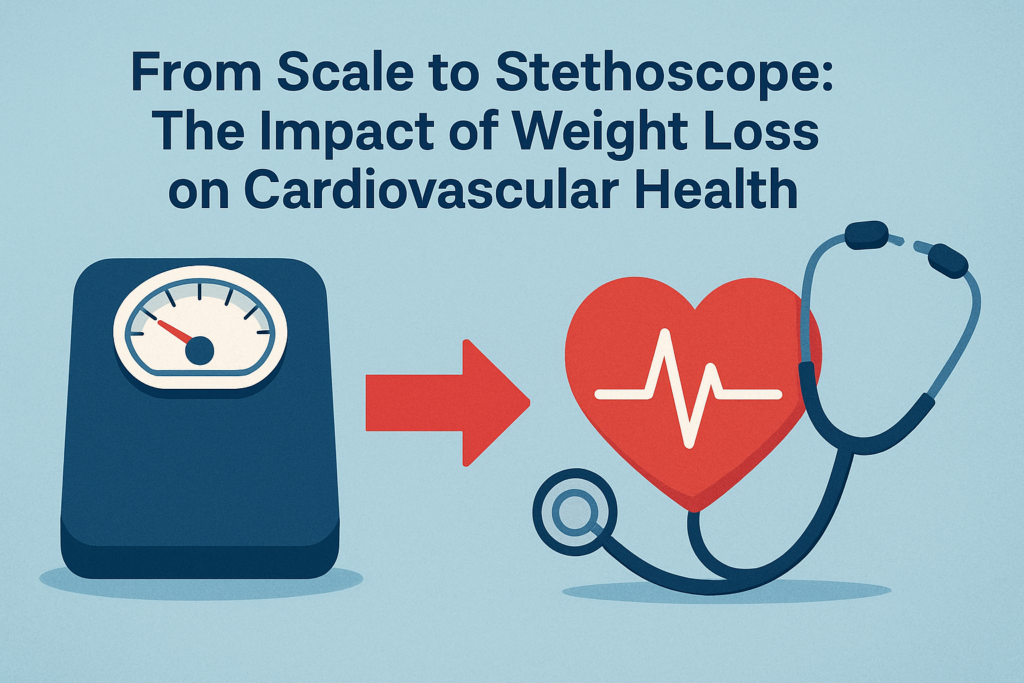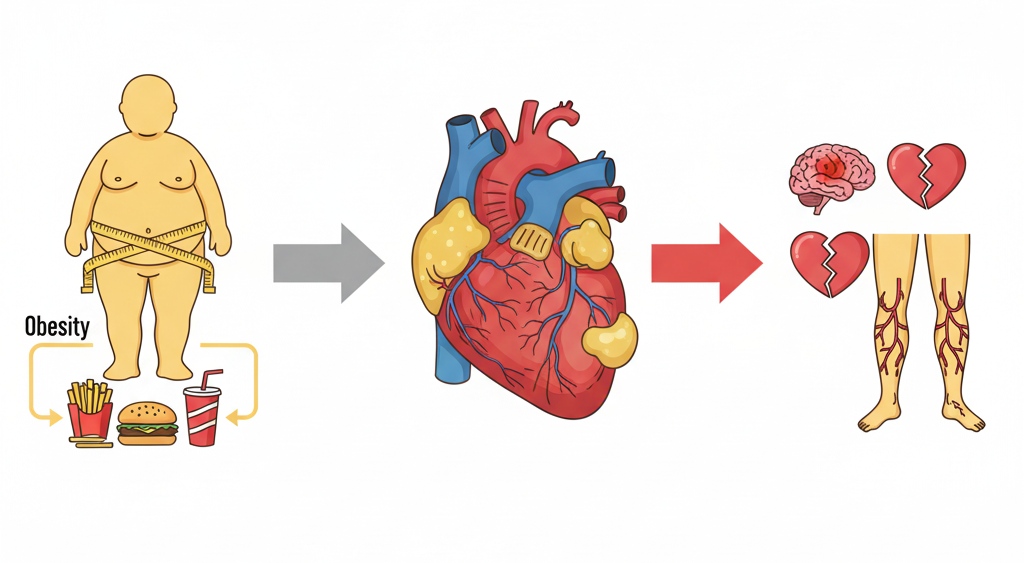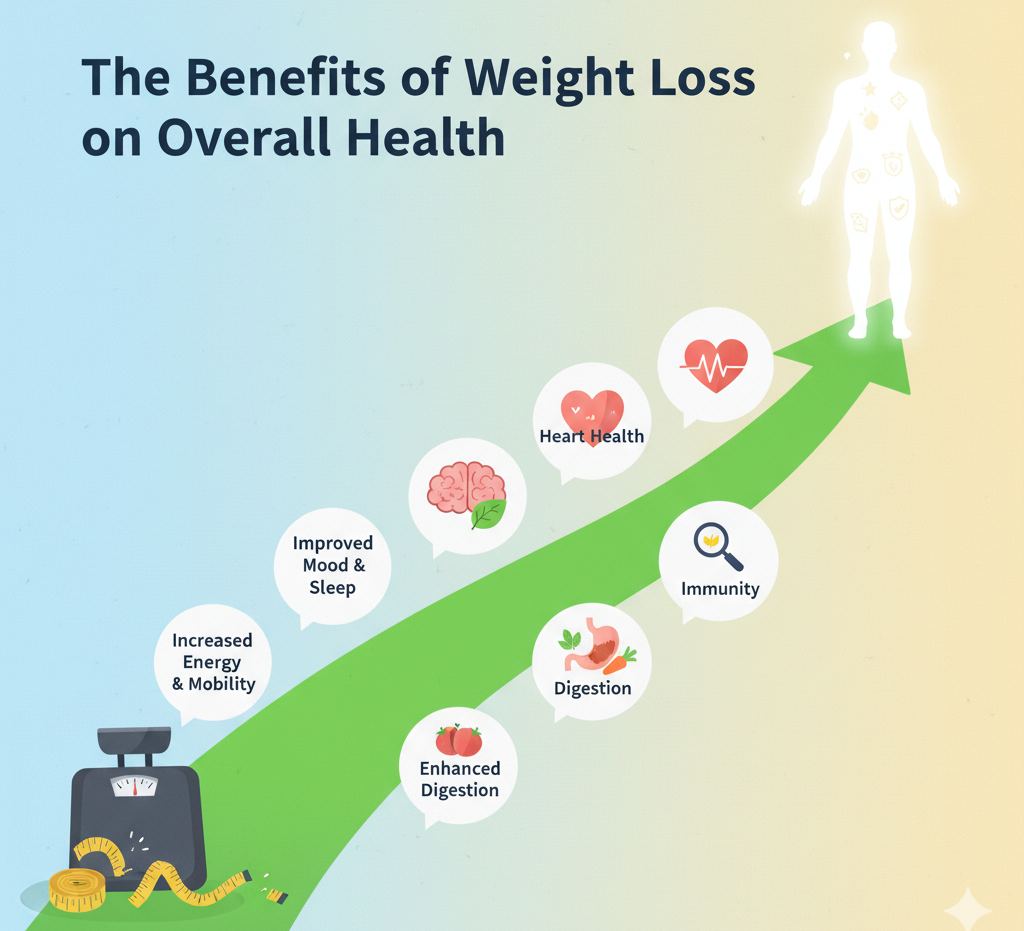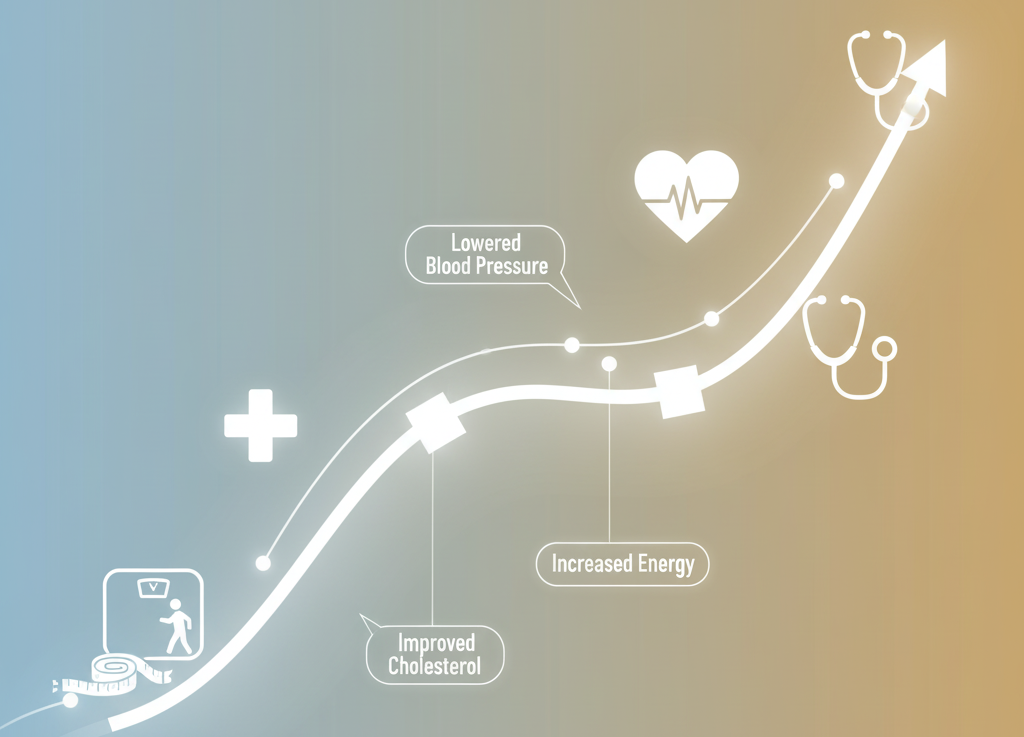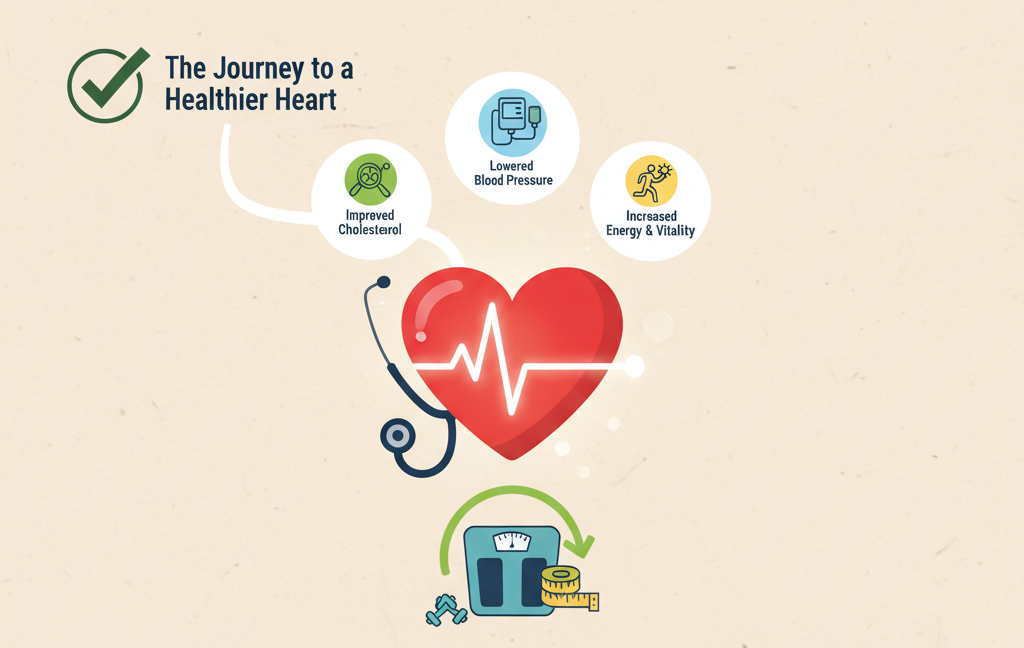Introduction to the correlation between weight loss and cardiovascular health
When it comes to heart health, the connection between weight loss and cardiovascular wellness is more significant than many realize. Shedding those extra pounds can be a game-changer in your journey toward better health. Every pound lost not only lightens your physical load but also offers powerful benefits for your heart.
Obesity has long been recognized as a major player in the development of cardiovascular diseases. The statistics are alarming—weight gain contributes to high blood pressure, elevated cholesterol levels, and increased risk of diabetes, all of which can strain your heart over time. But what if there was a way to reverse these effects? That’s where weight loss steps into the spotlight.
In this blog post, we will explore how weight loss improves cardiovascular health and delve into its myriad benefits for our hearts and overall well-being. From practical tips on sustainable weight management to integrating physical activity seamlessly into daily life, you’ll find actionable insights that could transform your approach to healthy living. Let’s dive into how making mindful choices today can lead to a healthier heartbeat tomorrow!
The role of obesity in cardiovascular diseases
Obesity is a significant risk factor for cardiovascular diseases. Excess body weight puts additional strain on the heart, making it work harder to pump blood throughout the body.
When fat accumulates around vital organs, including the heart and arteries, it can lead to inflammation and increased cholesterol levels. This combination narrows blood vessels and raises blood pressure.
Moreover, obesity is often linked with conditions like diabetes and metabolic syndrome. These conditions further elevate the risk of developing heart disease.
The impact of obesity extends beyond numbers on a scale; it alters how our bodies function at a cellular level. It creates an environment where cardiovascular health deteriorates more swiftly than in individuals with healthy weight ranges.
Addressing obesity through lifestyle changes can significantly lower these risks. Making small adjustments today may pave the way for healthier tomorrows when it comes to heart health.
The benefits of weight loss on overall health
Weight loss offers a multitude of benefits that extend beyond just shedding pounds. One significant advantage is the improvement in metabolic functions. A healthier metabolism can lead to better energy levels and enhanced overall vitality.
Additionally, losing excess weight often results in better sleep quality. Many individuals experience fewer disturbances during the night, which contributes to improved mental clarity during the day.
Mental health also sees considerable gains from weight loss. Achieving fitness goals boosts self-esteem and reduces symptoms of anxiety or depression for many people.
Moreover, dropping those extra pounds can alleviate pressure on joints, making movement easier and more enjoyable. This newfound mobility encourages a more active lifestyle.
Effective weight management fosters stronger immune function by reducing inflammation throughout the body—further supporting various bodily systems working harmoniously together.
How weight loss impacts heart health specifically
Weight loss plays a crucial role in enhancing heart health. When you shed excess pounds, your heart doesn’t have to work as hard to pump blood throughout your body. This relief reduces strain on the cardiovascular system.
Moreover, losing weight can significantly lower blood pressure levels. High blood pressure is often linked with obesity and puts extra stress on the arteries. A decrease in weight can lead to improved readings and overall vascular health.
Cholesterol also benefits from weight loss. Many individuals see a decline in LDL (bad cholesterol) and an increase in HDL (good cholesterol). This shift further protects against arterial plaque buildup, reducing the risk of heart disease.
Additionally, it’s important to note that weight loss decreases inflammation within the body. Chronic inflammation is a silent contributor to various cardiac conditions, making this aspect vital for maintaining optimal heart function.
Integrating Cardio Slim Tea into a Cardioprotective Lifestyle
Sustainable weight loss starts with setting realistic goals. Aim for gradual changes, such as losing one to two pounds a week. This approach feels less daunting and is easier to maintain.
Next, focus on portion control. Rather than drastically cutting out foods you love, learn to balance your plate with smaller servings of indulgent items alongside healthier options.
Incorporating a variety of nutrient-dense foods is key. Fill your meals with fruits, vegetables, whole grains, and lean proteins. These will keep you satisfied longer while providing essential vitamins.
Don’t overlook the importance of hydration. Drinking enough water not only aids digestion but can also help curb unnecessary snacking.
Track your progress without obsession. Use apps or journals to monitor what works for you while staying flexible in your journey toward better health.
Incorporating physical activity into a weight loss journey
Incorporating physical activity is essential for effective weight loss. It boosts metabolism and helps burn calories more efficiently.
Start small if you’re new to exercise. A daily walk can work wonders. Gradually increase the intensity or duration as your stamina builds.
Mixing different types of activities keeps things interesting. Combine cardio, strength training, and flexibility exercises for a balanced routine. This variety not only aids in weight loss but also enhances overall fitness.
Find activities that you enjoy; it makes sticking to a plan easier. Dancing, swimming, hiking—choose what excites you.
Remember that consistency is key. Aim for at least 150 minutes of moderate aerobic activity each week, along with two days of muscle-strengthening exercises.
Listen to your body and adjust as needed. Celebrate small victories along the way; every bit counts on your journey toward better health!
Other factors that can improve cardiovascular health
While weight loss plays a significant role in enhancing cardiovascular health, other lifestyle factors also contribute to heart wellness. Nutrition is key. A diet rich in fruits, vegetables, whole grains, and healthy fats can lower cholesterol and blood pressure.
Managing stress effectively is another essential element. Chronic stress can lead to unhealthy habits like overeating or physical inactivity. Techniques such as meditation, yoga, or deep breathing exercises can help maintain emotional balance and protect your heart.
Sleep quality shouldn’t be overlooked either. Insufficient sleep can elevate the risk of hypertension and other heart-related issues. Prioritizing restful nights fosters overall well-being.
Avoiding tobacco products significantly reduces the likelihood of developing cardiovascular diseases. Quitting smoking has immediate benefits for your vascular system while promoting better circulation.
By focusing on these additional factors alongside weight management, you pave the way for lasting improvements in cardiovascular health.
Conclusion and encouragement to prioritize weight loss for a healthier heart
Prioritizing weight loss can lead to significant improvements in cardiovascular health. Shedding excess pounds not only reduces the risk of heart disease but also promotes a healthier lifestyle overall. By understanding how does weight loss improve cardiovascular health, you can take meaningful steps toward better well-being.
As you embark on your weight loss journey, remember that it’s not just about the scale. It’s about enhancing your quality of life and enjoying a longer, healthier future. Embrace sustainable changes, both in diet and physical activity, and stay committed to your goals.
Investing time and effort into managing your weight is an investment in your heart’s health. Every small step counts toward reducing risks associated with obesity-related conditions like high blood pressure and diabetes. Celebrate each achievement along the way—whether it’s fitting into those jeans or feeling more energetic during daily activities.
Your heart deserves care; making conscious choices today can create lasting benefits for tomorrow’s health. So prioritize losing weight as part of a holistic approach to wellness, ensuring that every heartbeat keeps you closer to a vibrant life filled with energy and joy.

